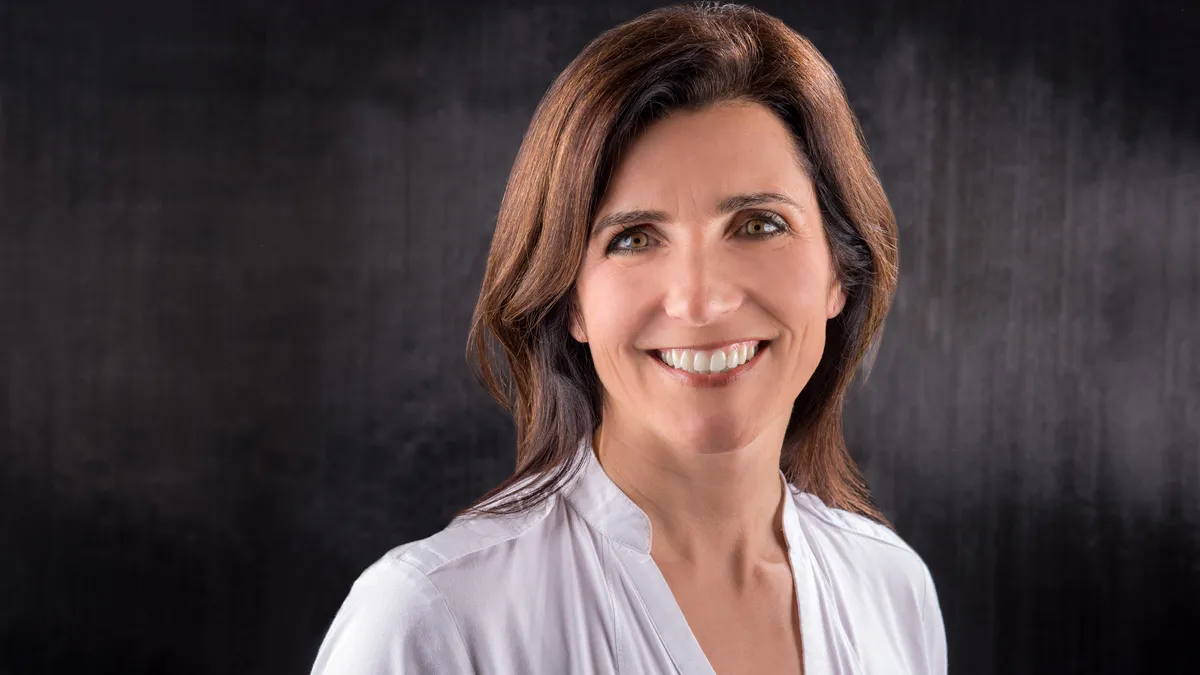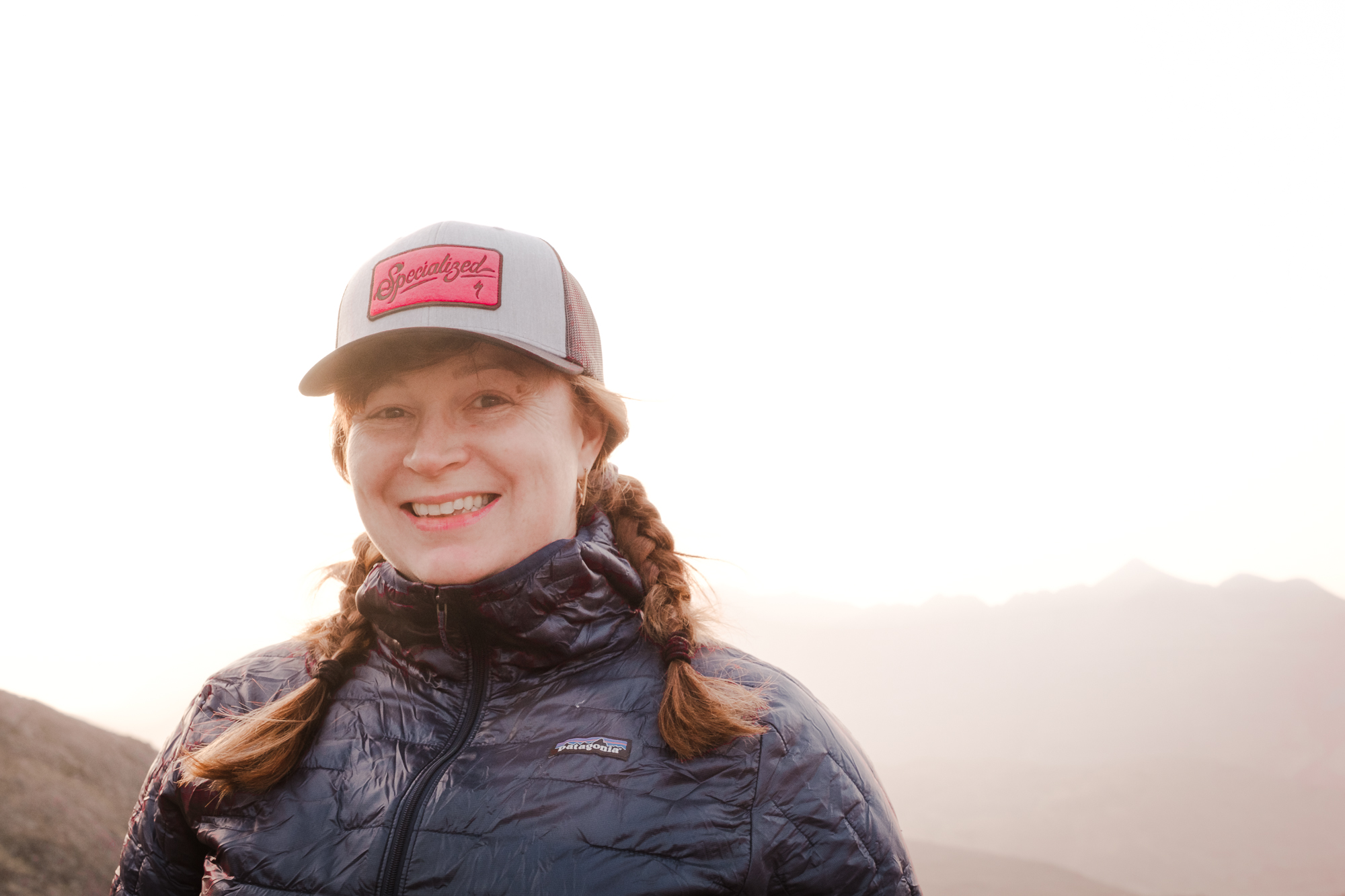When Sarah Lehman became CEO of Enve Composites, then Edge Composites, she fully expected it to be a temporary role to help stabilise the struggling company. Seven and a half years later, she's still in charge and the company, known for its premium carbon wheels and components, is going from strength to strength.
- Enve SES 3.4 wheels review
- Top 5 dream road wheelsets of 2017
- Women's cycling news, reviews, interviews and more on BikeRadar Women
Sarah Lehman's previous roles included the high-powered and competitive worlds of motoring and pharmaceuticals, and she brought her experience and business acumen to Enve with the goal of making a professional company with a consumer-focussed outlook. And along the way, she's found an increased passion for cycling herself.
I spoke to Lehman about how the bike industry compares to other sectors, what Amer Sports' buyout of Enve in 2016 meant for the brand, and what new products we can expect from Enve in the future.
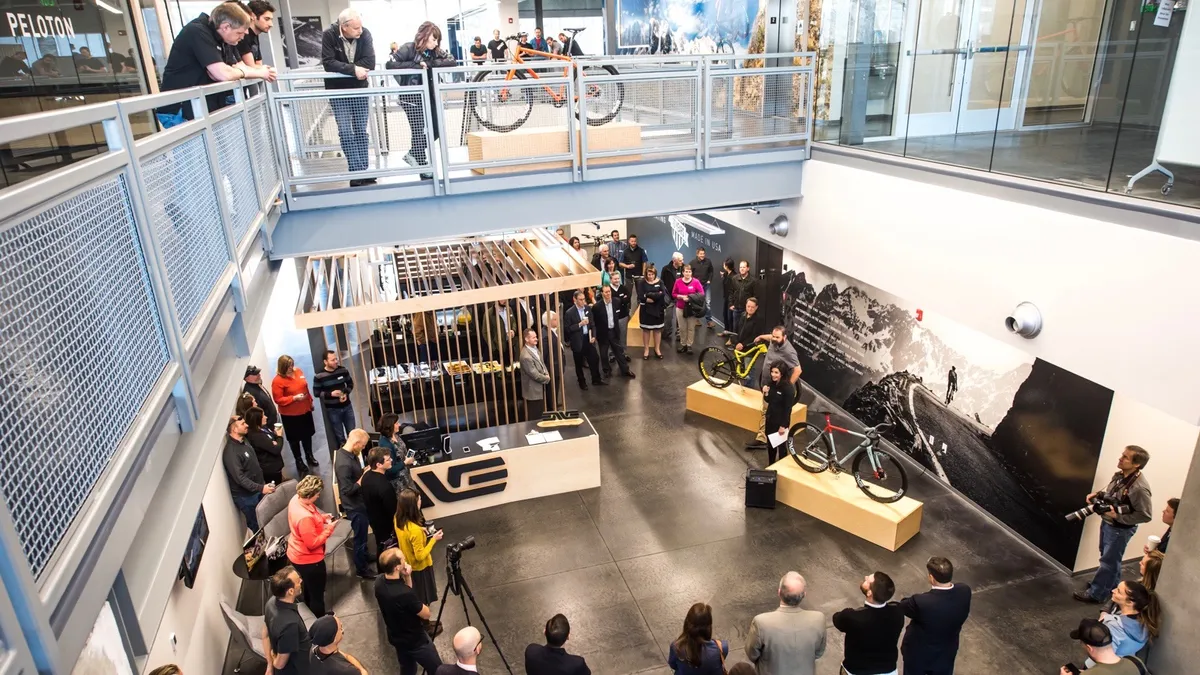
BikeRadar: First, can you tell us in your words how you came to be CEO of Enve? It's an unusual tale!
Sarah Lehman: "My career path has been very serendipitous, so I was really quite lucky to become the CEO of Enve.
"I moved to Utah with my husband, so I followed his career. He’d invested in an automotive aftermarket company with two gentlemen and I worked there for a little while, and that opened my eyes to the passion-based performance segment. Then we sold that company, and a few years later we invested in Enve, which at the time was called Edge Composites.
The relationship with Mavic is both competitive and collaborative
"I was doing my own thing, home with my kids, getting ready to go back into healthcare, when my husband called me and said ‘Hey Sarah, the person we had hired as the CEO for Enve has just resigned’, and I said ‘Well Paul, I will be there at 8 o’clock on Monday morning. Tell the team'.
"The reason that I said that was because I knew that everything we had was riding on the success of Enve, and it was not going so well. We had a great product, we had customers who loved us, but we were just running out of money.
"I literally thought it would be a 90-day commitment, and that was seven and a half years ago!"
How did you go about turning things around for Enve?
"We had a great product with people who wanted to buy it, which is a great starting point. The challenge was three-fold.
"One, we couldn’t make it [the product]. We were still an R&D shop versus a real manufacturing company, so we had to hire for that position and I spent six to eight months looking for someone to come on board and help us manufacture the product. That was a critical first step.
"The second step was to increase the level of accountability. Lots of small companies go through this growing pain where there’s a thousand ideas, but ideas are worthless unless you execute against them, so we got really good at executing them. We picked five things to focus on, and we did those five things, then we moved on to the next five things, and we held each other accountable to do what we said we were going to do.
"The third, and probably one of the most important things, is that we managed our cash very closely. At that point we were managing our cash on a week to week basis, so we had to cut back on our complexity, and make really hard choices, but sometimes the most creative solutions come out of moments of scarcity, so I think we’ve actually set ourselves up to be more unconventional as a result of the inception of the company being so tough.
"My job is to bring in the right talent. To find the right team, give them the right priorities, then support them in any way that I can. I’m happy to say that many of the people who came in at the beginning are still with us, working to our long term goal, so I think we got the right team in place too."
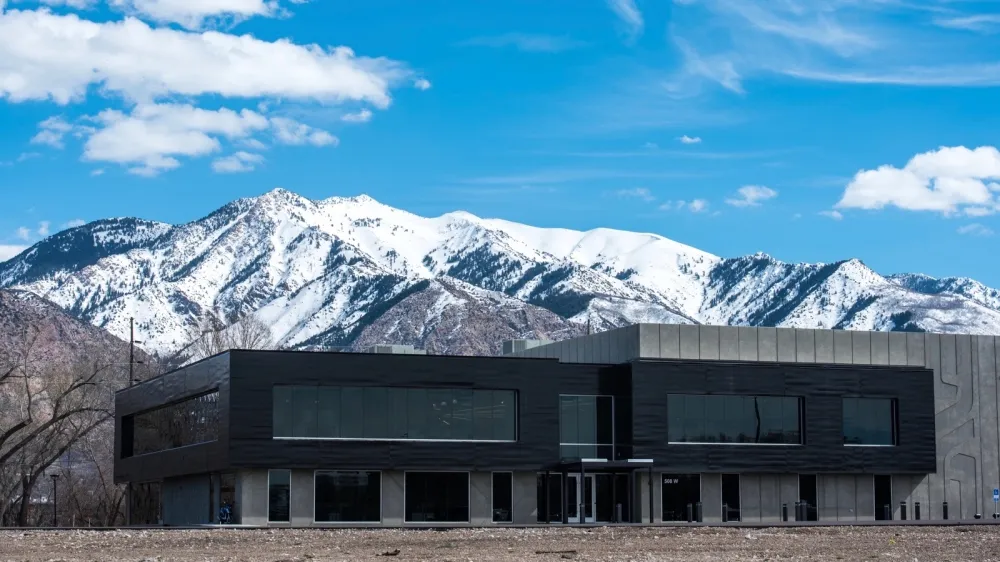
What were the implications for Enve when Santa Cruz started producing its own wheels?
"They've always been great partners, and we are incredibly indebted to them for the last 10 years — it's been a hell of a ride working with them!
"We weren't at all surprised by their decision to pursue their own brand; we have and will always be focused on the aftermarket, and our customers know we're there for their next upgrade. Who knows? Maybe we'll continue to work with Santa Cruz in the future."
Has the increased availability of cheaper carbon wheels affected Enve and how do you maintain your selling points?
"Enve is in growth mode right now, in all our markets, so while low cost options are certainly shaping the market, we're focused on innovating at the highest level and pushing ourselves to continue to bring more value to our consumers.
"In terms of the Enve selling points, it should ultimately give you a better ride experience. Enve is very good at finding the intersection between weight, durability, reliability — those functional attributes — to get that perfect balance to improve your ride experience.
"Secondly, it's backed by probably the industries leading warranty and lifetime loyalty program. Then ultimately the third reason is once you're part of the Enve family, we bring other benefits to the table in terms of consumer experiences, access to new products or individualized products."
How do you balance being reactive to industry trends versus enough R&D time?
"It’s definitely a balance! The first thing we do is fill our company with riders. I know they are passionate so they will likely pick up on where the market is going. If they then have the freedom to develop products then we are more likely to be responsive.
"That being said, we have been off the back. We’ve missed things and we certainly need to do a better job.
"We’ve now hired Matt Robertson [former MTB product manager for Shimano] to help lead our group in anticipating and understanding where the market’s going and make sure that we’re looking at the market dynamics and pointing in the right direction."
Enve also supports a selection of athletes and teams. Do you work with them in developing and testing products?
"Those partnerships at the professional level, whether it be in road racing, triathlon or mountain biking, are set up as development partnerships. We look to those professional teams to be key drivers in our product development.
"We have the mechanics giving us feedback, they send us the rims, we speak to the riders about their experience, we send our engineers to the races to observe what the setup is. It’s all encompassing.
If you know of any female engineers interested in working in Utah, please send them my way!
"Right now, for example, the Santa Cruz Syndicate [downhill MTB team] is riding a whole load of prototypes that will eventually be launched as a next generation mountain bike series."
Enve became part of Amer Sports Group late in 2016, the same parent company that owns Mavic. What has this meant for Enve?
"The real opportunity for Enve is in terms of worldwide distribution. Amer has a much more expansive network in Europe and many more countries that Enve, so we were able to plug into those markets in a relatively short time.
"The consequence of that is that we have experienced more demand than we could supply, so we had some operational challenges and our consumers have experienced longer lead times than we would like, but we are working through and responding to this.
"The relationship with Mavic is both competitive and collaborative.
"It's competitive in that we have each other to evaluate against, and it's nice in some ways, it keeps you on your toes.
"In other ways, it's collaborative. The Speed-Release fork and axle is a great example of collaboration, and I think we're only scratching the surface of what we can work together on.
"Mavic has tremendous alloy capabilities and years of developing wheel and tyre systems. We have lots of carbon expertise, so you can imagine the possible collaborations."
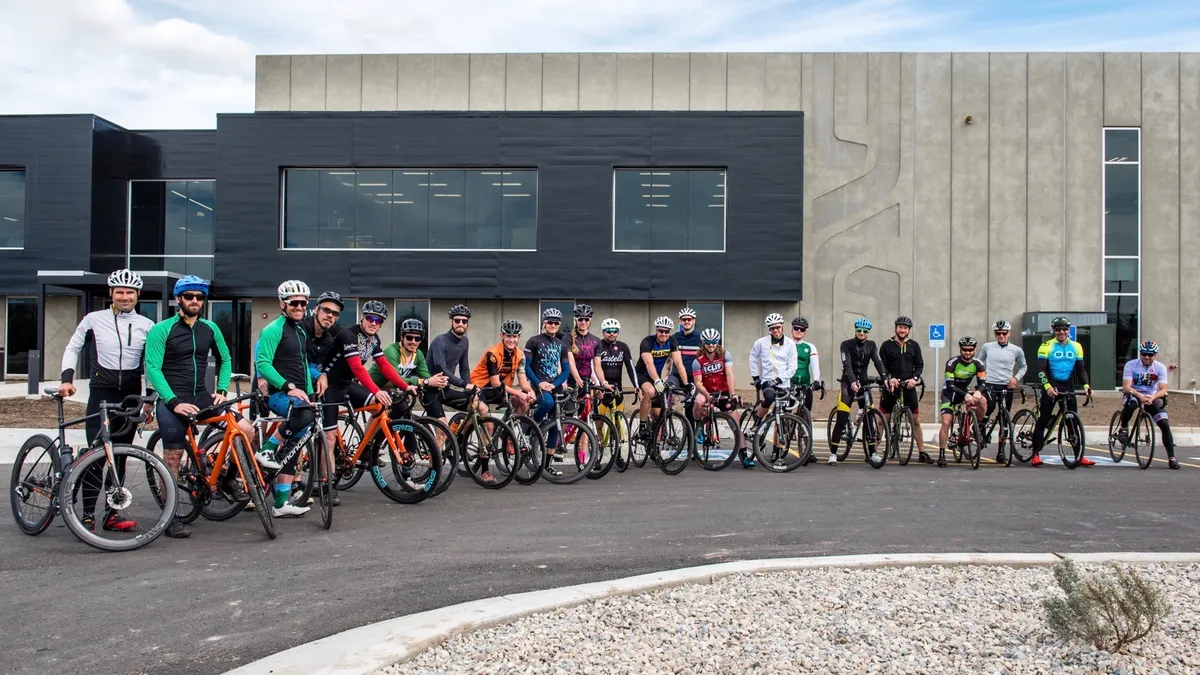
What does Enve have on the horizon in terms of new products?
"We're going to expand our component line, we think there's a lot of opportunity for Enve solutions. We'll continue to focus on wheels.
"What our consumers should expect from us is that we continue to innovate. We're a function-first brand and it's important to us to provide real solutions and get closer to our consumers so we understand what they're looking for."
You're one of the most senior women in the bike industry. How do you feel the industry is doing in terms of reaching gender equality?
"Well, I think we’ve got a shortage of women. There are many of us doing great things, but you can still go to an industry show and it’s predominantly men, and I think until we have women designing for women, talking to women, marketing to women, we’re still off the back.
"There are some companies that are doing great. Rather than saying ‘oh this is growing, go figure out how to shrink it and pink it’, there are companies that are doing a great job. They’ve hired women, they’re investing in it, and the products coming out of it reflect that.
"I think we have a long way to go. I think in the last five years there’s been a lot of progress and we’re all still figuring out how to do it, but I think it comes from hiring women into key positions.
"And then I have to look at myself and say ‘what have I done at Enve to foster that’ and we’ve done a good job I think in our service side. We’ve just promoted a woman into marketing and she’s just going to kill it for us because she’s working on our consumer events.
"Where we’ve fallen down on the Enve side is bringing females into our engineering department, and it remains one of my personal goals. If you know of any female engineers interested in working in Utah, please send them my way!"
Finally, what impact has being involved in the bike industry had on you personally?
"I'm more fit and I ride bikes more! I also ride all types of bikes: I didn't pick up a mountain bike until I joined Enve, and now it's my favorite because the trails around Utah are awesome.
"I’ve just got back from a trip with my husband and we rode in Bhutan, and India, and Italy, and it was the most amazing experience. It gave me the itch to travel way more for cycling than I ever have.
"One of the other great consequences is that my whole family rides bikes. It was a mandate; if mama works for a bike company, you’re going to learn to ride! My kids are incredibly competent mountain bikers, and my daughter just expressed interest in getting a road bike.
"What I have to do now is pay it forward. We’ve got a program at Enve called Butts on Bikes, and we purchased a bunch of Cannondales and made them available to our employees so anyone can ride a bike. We also have kids' bikes available. The next phase is to create rides for people who might not ride much already — we've even bought e-bikes so more people can get involved and bring more people into cycling."
